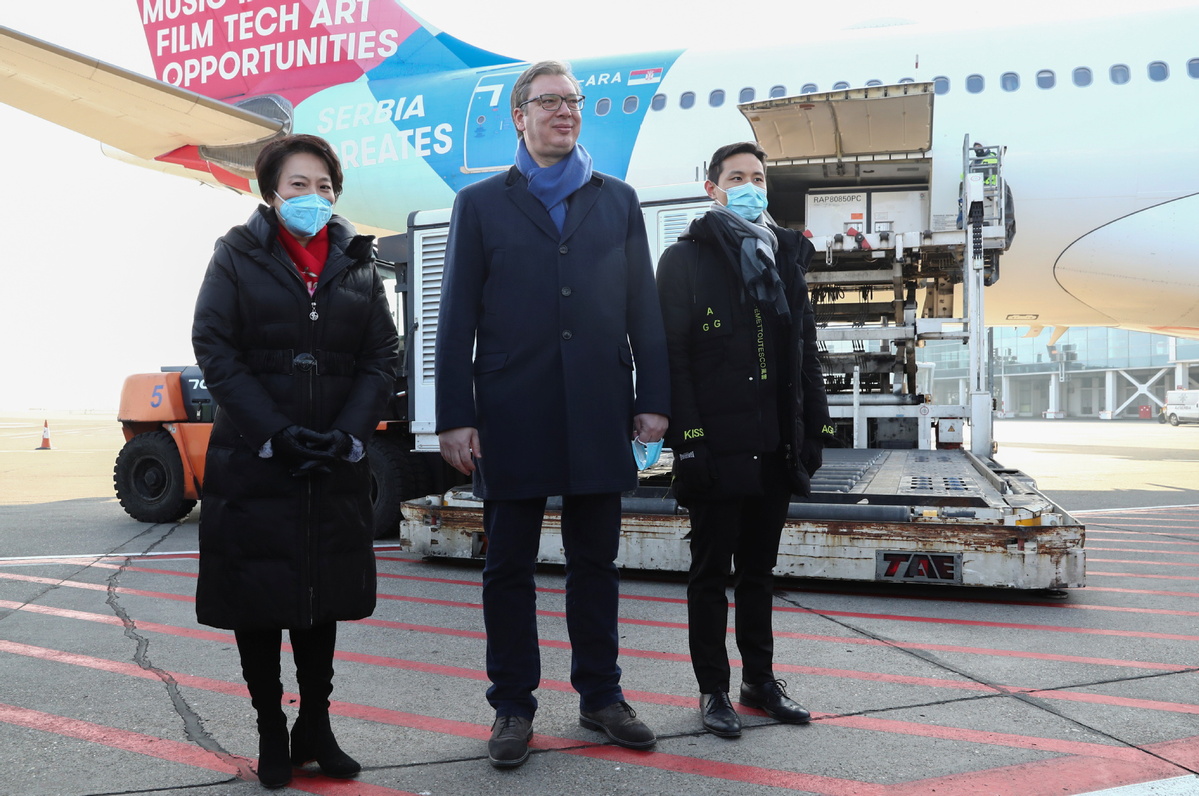Serbia gets ahead on vaccines with China's help
Updated: 2021-02-05 15:31

Serbian President Aleksandar Vucic puts his country's status as continental Europe's frontrunner in getting vaccines into people down to one thing: looking east as well as west.
Most of the 1.1 million doses imported by the government in Belgrade so far have come from China's state-backed Sinopharm.
The speedy rollout of injections to combat COVID-19 relative to the EU underscores the tension across the continent, and also the potential geopolitical consequences in its most volatile region. Already, the Serbian approach has its followers within the EU: neighboring Hungary became the first member of the bloc to approve shots made by Russia and China.
Serbia's goal is to join the EU, though with an electorate already divided over membership, the pandemic risks pushing the country into the orbit of rival powers. Meanwhile, Belgrade has promised vaccine donations to Kosovo and Bosnia-Herzegovina, exposing the divisions again in former Yugoslavia that fueled the bloody wars of the 1990s.
Serbia started to vaccinate on Dec. 24, days before the EU. It has contracts for 6.5 million vaccines, but the global scramble for jabs is hurting confidence that the deals will be honored, Vucic said.
German Chancellor Angela Merkel held crisis talks on Monday with pharmaceutical executives and European Commission officials as part of efforts to speed up the stuttering vaccination push. The EU's 27 states collectively have inoculated 2.9% of the population compared with 14.7% in the U.K. and 10% in the US, according to Bloomberg's Vaccine Tracker.
"People in the EU are good people, but luckily I had enough experience and knowledge to assume that it would turn out like this," Vucic said. "This is a war for people's lives but also for the future of every country."
























